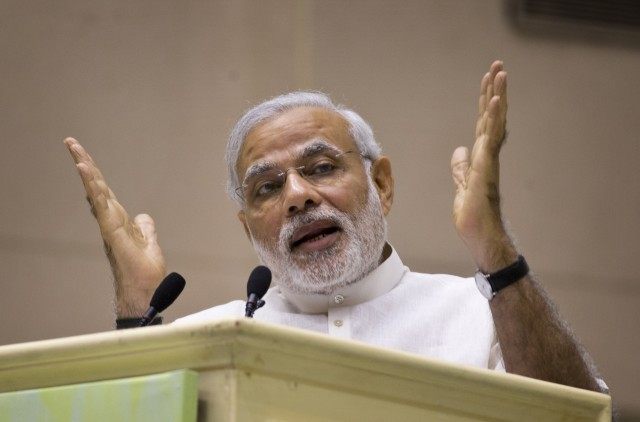India’s Prime Minister, Narendra Modi, has indicated that he will not submit to Western pressure on cutting CO2 emissions.
In the lengthy run up to the international climate conference (‘COP21’) in Paris later this year, Modi’s comments will be sure to cause consternation amongst climate campaigners. Indeed, since his investiture last May last year, the Guardian has expressed concern that he might be (gasp!) a climate sceptic.
As the third largest CO2 emitter behind China (1st) and the U.S. (2nd), climate negotiators are keen to secure some kind of meaningful agreement to reductions from India at the Paris negotiations. However, Modi’s ruling Bharatiya Janata Party (BJP) has pursued a development agenda that is at odds with Western hand-wringing. The BJP has opened up the nation’s coal mining industry in a bid to meet domestic demand. It has also taken on environmentalist groups such as Greenpeace, regarding the latter as inimically hostile to India’s economic success.
Modi has made some conciliatory remarks aimed at the anti-CO2 lobby about switching to “cleaner” energy sources. However, the U.S. Energy Information Administration (EIA) projects that India’s energy demands will continue to grow by 2.8% per year and that most of this will be met through increased fossil fuel production.
It is possible that India may elect to follow China’s method of sidestepping this issue previously by making further promises to reduce ‘Carbon intensity’ rather than overall CO2 emissions. This means reducing the emissions per capita (per person) rather than adhering to a total emissions cap. China has failed to adhere to its own commitment on this, though it was sufficient to mollify climate negotiators at the time.
Ultimately though, Modi’s position highlights the continuing hypocrisy of Western governments who demand such restrictions with no regard for Indian or Chinese aspirations for their citizens to achieve a Western standard of living.



COMMENTS
Please let us know if you're having issues with commenting.